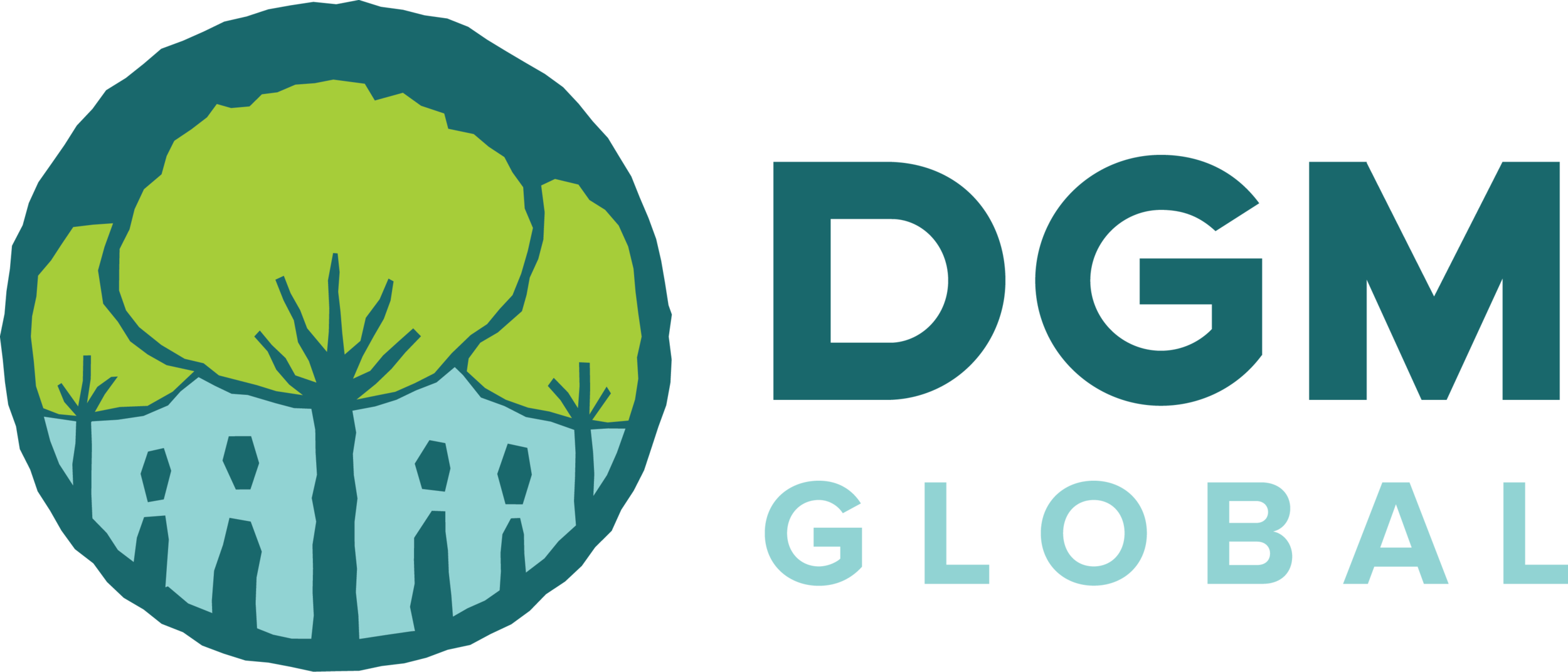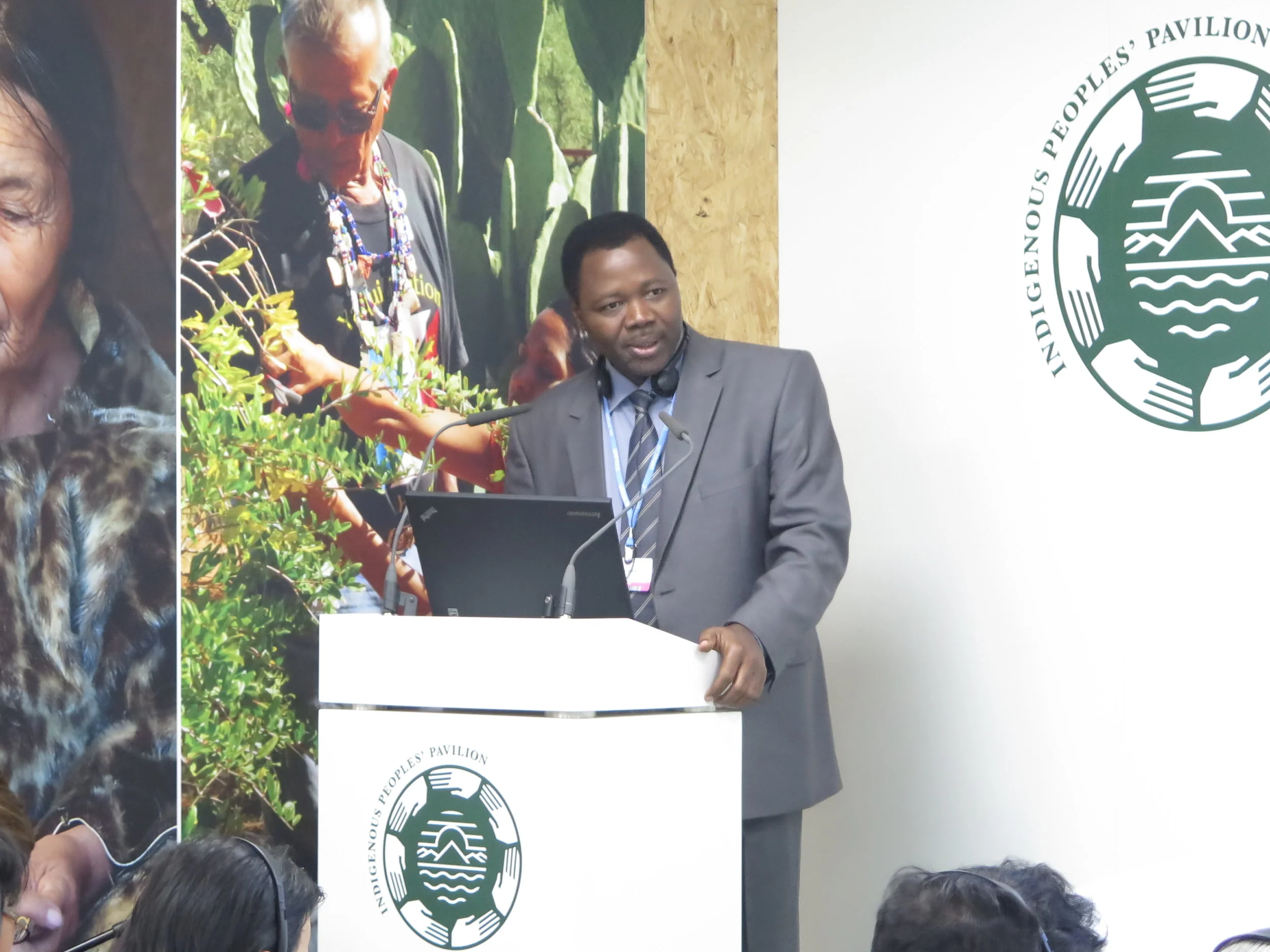IPLC Perspectives on COP23: Idrissa Zeba
DGM Global cannot guarantee the accuracy of Google translations. In case of discrepancies, the original language takes precedence.
Idrissa Zeba is the co-chair of the DGM Global Steering Committee, member of the National Steering Committee for Burkina Faso, and participant in the recent DGM Global Exchange and UNFCCC COP 23.
Photo credit: Luis Barquin
Idrissa Zeba speaking about the DGM at a COP23 side event hosted by the Indigenous Peoples Pavilion.
This is my 5th year participating in the Conference of the Parties (COP) of the United Nations Framework Convention on Climate Change (UNFCCC). It is promising to see many of the commitments made in Paris beginning to come to fruition. The Local Communities and Indigenous Peoples (LCIP) Platform, adopted during the Paris Agreement, has presented a space for indigenous peoples and local communities (IPLCs) to have a continuing role in climate action, and this is particularly relevant to the work that we are trying to achieve through the Dedicated Grant Mechanism for Indigenous Peoples and Local Communities (DGM). The DGM strives to place both finance and decision making related to the reduction of emissions from deforestation and forest degradation (REDD+) directly into the hands of IPLCs; these activities are happening at both the national and global level. In Burkina Faso, we are very informed and involved with national-level REDD+ activities and DGM plays a key role in implementing many of these priorities.
The LCIP Platform is a good opportunity for governments to reinforce their support for IPLCs at both the national and international level. For example, the facilitative dialogue can open the possibility of strengthening a country’s Nationally Determined Contributions (NDCs) and adapting to be more inclusive or incorporate aspects of traditional knowledge and indigenous knowledge systems and further engage different sectors of society to contribute to country increased ambition.
Special reports from the Intergovernmental Panel on Climate Change (IPCC) have advised that there are indeed synergies between indigenous peoples, local communities, land rights, and customary rights in relation to attaining the ambitions indicated in the NDCs that involve use of the land. These analyses further emphasize the need to better engage with groups dependent on natural resources on a day to day basis. At the international level, the LCIP Platform could create a space for indigenous peoples and local communities to contribute to the climate change policy negotiations. This aspect will be very important for the role that non-party stakeholders have in these discussions.
Burkina Faso places local communities at the heart of its climate action in general, and in the implementation of its NDCs in particular. This is why it supports the LCIP platform's adoption in the Paris Agreement and welcomes the related conclusions from COP23. I do think there are ways that the country can engage. This could take the form of having an IPLC representative as a focal point on the platform that sits on the Burkina Faso national committee supporting the implementation of the Paris Agreement, or organizing a national workshop on the updates and status of the implementation of the Platform prior to COP. The platform is very connected to the work of the DGM, and it is important that the connection between DGM and NDCs is also recognized.
Overall, participating in international policy fora such as COP is a positive way for me to continue to be engaged and actively contributing to these conversations and share the mission and results of the DGM to a larger audience. I am proud to have attended COP23 as the co-chair of the Global Steering Committee and am grateful for the opportunity to have uplifted the voices of local communities and other groups marginalized by the impacts of climate change.
Written by Idrissa Zeba and Melanie Allen

